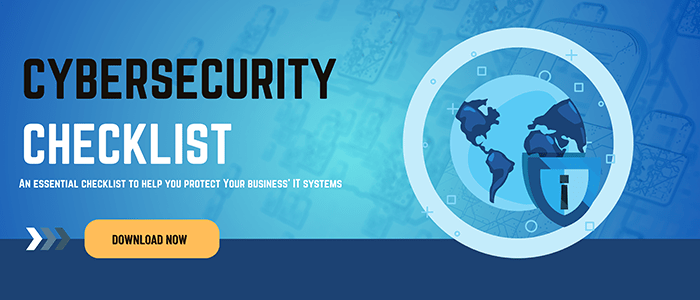Social Media -What You Need to Know

Summary: Lonnie and Steve from PCG talk about the dosand don’ts of Social Media from an IT and Security point of view.
Mike: Lonnie Cherry and Steve Ripper are in studio today. My friends, good to have you both on the radio again.
Steve Ripper: Good morning, Mike.
Lonnie Cherry: Thanks for having us, Mike.
Mike: It is a day of social media talk.
Steve: Yeah. We’re going to talk about social media.
Mike: When I was at the prep meeting last night for this particular segment, we were going over what we’re going to talk about, social media dos and don’ts. This includes just about everybody except two people that I know.
Steve: Yeah, who doesn’t get involved in this conversation? Who isn’t using social media? It’s actually a conversation, because it’s funny.
Mike: I have two close friends that are not involved with social media. They don’t want to be involved with it whatsoever. They don’t want to get into the whole thing about it. They don’t want to do it.
Lonnie: They are two of the smartest guys in the world, then.
Steve: They might be.
Mike: You think they are?
Lonnie: Maybe.
Mike: Well, you know my theory about things like Facebook and Instagram and Twitter and stuff like that, especially like Facebook. Eventually, I don’t know, give it 5 or 10 more years, everybody will be connected with everybody and that will be the way that we get in touch, through messaging. It won’t even be just texting people on their phones, it’ll be just like, “Oh, here’s another option, we’ll just, we’ll use the messenger”, you know?
Steve: Have you had this moment where you’re at a party and you’re talking to someone and you already kind of know where they went and what they did? Like, half the conversation’s done already. They’ll start to tell you about their thing in Italy and you’ll be like, “I saw the pictures.”
Lonnie: I do that. I totally let the people down. I’m like, “Oh yeah, I saw it on Facebook,” and then the conversation stops.
Steve: It’s all done. Like, what do we talk about? I saw you driving around Tuscany and you had a small car and you ate spaghetti. It’s like, what do we talk about?
The Dos and Don’t of Social Media
Mike: I know, I know. And what is the biggest thing that people talk about, dos and don’ts of social media? What are the biggest things that people tell you not to do on social media, is to tell people around the world that you’re on vacation, leaving your home.
Lonnie: Your home. “I’m not home. I’m at the grocery store. Rob me, please.”
Mike: “I’m visiting the Pope this weekend.” “Oh great. Who’s at the house?” “Nobody.”
Steve: So, dos and don’ts.
Mike: Yeah, so obviously let’s talk about this, what to do and not to do on social media, at work and at home. And this pretty much includes everybody who I can think that are our listeners, how users can protect themselves on social media. And you really do have to, you know.
Steve: Oh you do, you do. And I’m going to grab the first, most obvious one, Lonnie.
Lonnie: Go ahead.
Steve: Change your password. Change your password every now and then. You’ve got to change your password. Stop making it easy for everyone. It’s fine. No one’s really doing it. There’s so many people in social media that it’s actually hard for them to hack everybody. But if you’re keeping the same password for 10 years, you’re making it easier on them.
Lonnie: Absolutely. I mean, I hear every day more and more people go, “Hey, if you get a message from me, it’s not me. I’ve been hacked.” Part of that reason is probably because they haven’t changed their password. Or the other one that we could talk about is know the settings that Facebook, Instagram, and some of the other social media sites have that are there to protect you. Use them. Don’t make it easy for those guys to get on your page, snapshot all your pictures, and then put up a site that says it’s you or even get into your own, your own social media site.
Mike: You know, the one thing that I’ve seen, and I haven’t been a victim of it, I don’t think I have been a victim of it. I hope I haven’t been, but I’ve fallen for some of those. Let’s put it this way. When someone friends you on Facebook and you’re already friends and you say to yourself, all right, I’ll just click on it, accepting that it’s got the picture there and everything else. Then of course it pops up in messenger. You know, “How are you Mike?” “I’m fine.” “What’s going on?” It’s the oddest, like, robot conversation all of a sudden and where’s it getting? You know. And eventually it gets down to a talk of dollars and I say, “Goodnight.”
Steve: Yeah, “Goodnight.”
Mike: It’s not really you. I get it now.
Lonnie: Yeah, and that happens. Definitely.
Posting Company Photos
Steve: Yeah. And then, so, company-wise, right, because we’re always talking about companies as you were mentioning. You know, one of the things I always try to tell people when I talk to them, I’m like, “Listen, when you’re at the company event, don’t post anything at the company event.” Don’t be that person who’s putting photos up of your coworker at the Christmas party. Maybe they’ve had a few too many drinks. Right? Don’t put yourself in that position. Let the company’s marketing department, if they want to put a photo up of the company picnic, let them do that. They can handle the responsibility, if there’s fallout from it, don’t you do that. Protect yourself. You know, that’s fine. Do things with your friends, do social media with your friends, but if you’re at the company party, just refrain from putting stuff up like compromising photos, things that somebody might be upset about. Try not to do that.
Mike: I guess we’re too quick to post things up all the time, right?
Steve: All the time.
Lonnie: Absolutely.
Mike: I mean because that’s what it’s all about. Let’s post, post, post, pictures, pictures, pictures. Here I am, here I am, here’s what I’m eating and here’s where I’m going. You know, stuff like that.
Social Media and Job Hunting
Lonnie: Know your audience, I mean, because in this day and age, even employers are using social media to kind of get a feel of what type of a person you are. And you know, you have to realize that sometimes, you didn’t mean to post that wild, crazy party night picture, but somebody else, for a job maybe that you’re really into, is going to be looking at that. And if your site’s to the public world, they may see something that you may not have wanted them to see.
Mike: Yeah. You bring up a very good point, Lonnie. The fact that people are posting things… And I just lost my train of thought. I was going to say, I had something so great to tell the world.
Steve: Yeah, no, well, I’ll let you think about it Mike. The thing to think about, especially as you get into some of these, you know, of these higher paying jobs, if you’re thinking in that, in a career that way, your social media is your resume all the time. It’s like a living resume. It’s who you are.
Mike: That’s what I was going to say, you jogged my memory there. That I’m always surprised in this day and age, but not surprised I guess, that people who are looking for a job, the potential employers are looking at potential applicants’ Facebook pages to see what’s been going on. You know, how wild and crazy are you and even your political views, you know?
Lonnie: Absolutely.
Mike: And you would think, “Well, why look at my Facebook page, my Facebook page is private.” I don’t think so. It’s out there for everybody to see. And I think you’ve got to be a little bit more discreet as to what you’re doing and take more control of it, I guess.
Lonnie: Yeah. No, I mean, these settings are there for a reason. You know, like some of the public settings is don’t have your friends list out on your site so everybody can see who you’re friends with. Not that it’s a bad thing, but you never know. There could be somebody that’s offended somebody else or this, that and the third. You don’t want those things out there sometimes. You know, you want to be really conscious about your settings, your privacy controls and so on and so forth.
Mike: Yeah. But imagine that probably 66% of the people that use Facebook, two thirds of the people that use Facebook probably have no idea where privacy controls are or how to even adjust those privacy controls. They don’t want to be bothered with it. They just think that Mark Zuckerberg is controlling everything and everything’s…
Steve: … It’s going to be fine.
Mike: Everything’s fine.
Steve: So people get the attitude that if everybody’s using it, it must be okay, and that’s not always the case.
Social Media Use at Work
Mike: So you know, you’re talking about companies monitoring web traffic for their employees. There’s been all sorts of statistics that people, the workers in companies use company time to be on social media for their private time, which is obviously wrong, but I think people do it all the time because they can, because of the access to their phone all the time. They’re not doing that on company computers, they’re probably doing it more on their phone, but on company time. That’s a serious offense. That could be bad.
Steve: Yeah. So as a company you kind of want to decide, first of all, how do you feel about that? I have companies that I do work for that are fine, “I don’t want to, Steve, I don’t want to block the Facebook.” They’re focused on their employees being happy and if Facebook makes them happy… Other companies are like, “I don’t want any of that.” So you have to decide as a company what do you want and then you have to do a policy. You have to make sure that you talk to your employees about it. If you just keep it passive aggressive, you don’t want it but you’re not telling them that, then there’s going to be problems. Right? So have an acceptable use policy and then enforce it.
Lonnie: Yeah, you’re going to want… A lot of companies out there will also use content filtering and web filtering for that also. Like Steve said, they’ll want maybe Facebook or LinkedIn to be available because you know businesses are doing business on those sites now, but they may not want some of the other social media sites out there. There are social media websites that may be an app on your phone, but people are looking at going to get podcasts from that are a little bit less work appropriate. So they’ll use this content filtering to kind of filter that stuff out. Kind of keep people from getting onto those sites and using that time that they should be working, on being on those sites. They are kind of distracting some of them.
Internet/Web Filtering
Mike: Lonnie, how does the whole system of web filtering work actually? If a company sets up web filtering on all the employees’ computers, how does that work?
Lonnie: Well basically, all the traffic goes through a single point and through that single point they’re able to filter, almost like you filter the water out of your spaghetti, they filter the traffic out of the firewall and say, “Okay, those packets are destined for this website. No I’m not going to let those leave this building.” And they’re going to get a response back from their website saying, “Hey, I can’t let you go there.”
Mike: Do they have to specifically pick certain websites or pick topics or…
Steve: Yeah, you can, Mike. A lot of the systems that the companies use — we have a particular system we use — you can either say, “I don’t want CNN”, or for example, “I don’t want a particular website”. Or you can do categories. You can just say like TV, anything TV related. You can say things like social media. Generally all the web filtering products have a social media category where they’re just, they’re aggregating all of the Instagram, Facebook, Snapchat, any of those ones, and they’re just blocking all of them. So you can do individually or categories.
Mike: Yeah. Interesting stuff. And you talk, let’s go back to the very first thing you talked about, training and education on people, how to handle password management to all the services they use and how to avoid scams and hacks. Is that something that PCG for instance, could go into a company and do a little bit of a seminar about, here’s what to look for and here’s what hacks are like. Because sometimes we look on Facebook or social media sites, Instagram, Twitter, and we’re not quite sure if that is a hack. It looks kind of like the real person’s profile, but it’s not really the real person’s profile now. Is that something that you teach people and teach companies?
Security Training
Steve: Oh yeah. So we definitely do training. I particularly will go in and do training sessions for the whole company. We’ll talk about ransomware, hacking, passwords, multifactor. And when I do those, Mike, I don’t just tailor it just for that company because it’s useful to the company that their users get good at it across their lives. So a lot of times when I’m doing the thing I’m like, “Listen, this applies to your own banking websites. This applies to your airline when you’re getting airline tickets.”
You know, use all of these strategies, different passwords, multi-factor authentication, know what to look for. So we do all of that training Mike, and I’m glad you brought that up because we’re doing October 22nd [2019], we’re doing the breakfast technology series. I said, “Dave, I’m going out the door to Mike.” Dave was like, “Don’t forget to mention that, you have to do it this time.”
Lonnie: You have to plug the event, plug the event.
Steve: Yeah, October 22nd, the breakfast technology series. We’re doing one on ransomware. Okay. So we’re-
Mike: … And this is going to be at the Portsmouth country club?
Steve: It will be at the country club, Mike. Absolutely. So you know how like we were talking, 60 minutes did the ransomware thing, it’s big and hot in the news. So we’re going to talk about all of those things.
Mike: Yeah. Really important topics because it’ll really open up your mind as to, “Wow, that’s really happening out there?” “Yeah it is.” And it’s stuff as we say, “It’s happening not just on your computer but on your smart devices like your phone and your tablets as well. They’re into everything.
Lonnie: Every day there’s a new article. Every day.
Mike: This whole double verification thing into email now is fascinating stuff. I thought that I only had to put, because we’re on it here at WTSN as well. And I thought I just had to put it in once, but every time I open up my email I get something, a phone code and I’ve got to put that number in and stuff like that.
Steve: It’s annoying. A lot of people don’t like it, but you have to always…
Mike: … I don’t particularly like it to be honest with you.
Steve: No, no, of course not, but what you have to do is, it’s like working out. You have to convince your mind that if I have to do this, the hacker does also, and the hacker doesn’t have my phone, he can’t get in.
Mike: Yep. There you go. All right. Good advice. Social media stuff, dos and don’ts, what to do and not to do on social media, work and home. You can find out more by logging onto PCGIT.com. As always, Steve and Lonnie, good to see you guys.
Lonnie: Thank you, Mike.
Steve: Thanks, Mike.
Mike: Tech Tuesday. Thank you guys very much. Give my regards to Dave and to Broadway.




